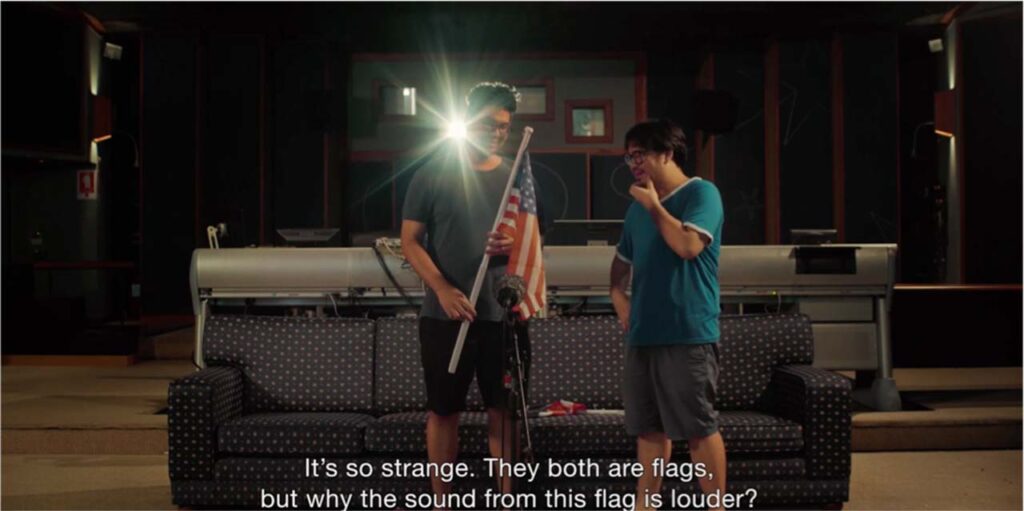The Politics of Sound In Film
This article contains spoilers.
Having a right to a voice is a basic human right. At times, that is inexpertly neglected, and even brushed off in certain communities and countries. Without my voice, my freedom to express myself and be heard is stripped away. I have no identity, and I fall into the cracks of the silent minority.
For every auteur and filmmaker, the medium of film aids in spreading their voice to people across national and international boundaries. For Thai filmmaker, Sorayos Prapapan, like many others, feels he lives in a country where his voice is unheard. As a soundman turned director, he recently produced his short film, Death of the Soundman (2017). He made the film to express his belief that sound in film is important, as is the voice of the Thai people. It is going to premiere under Programme 3 in the Southeast Asian Short Film Competition category at the Singapore International Film Festival (SGIFF).

The film follows two sound recordists who are working on a final mix of a film. We see them going around their country recording foley for the film. On one hand, it shows us what goes on behind the scene to capture sound for post-production. However, the larger issue that the director highlights parallels that the sound produced for this film represents the voice that the characters have in society. Sadly, it does not seem significant enough.
For example, what struck me the most was how Sorayos Prapapan tackled the issue of white supremacy with the play of sound. In the most powerful scene in my opinion, the two sound recordists were trying to record the sound of a flag flying. They used their country’s flag and the microphone did not pick up the sound at all. They decided to change the flag to see if something else would work and behold, they took an American flag and the sound was dynamic. I remember thinking to myself, this was brilliant. The scene was done quite comically but the message was powerful. It shows that comedy can be a powerful political statement in film.

Besides highlighting politics, Prapapan is clearly passionate about highlighting the woes of the sound man, and the problems are relatable to sound professionals across nationalities. In a low budget or independent film, there is usually only one sound man on set who deals with location noise, wardrobe ‘noise’ – yes there’s such a thing – among many other problems. There is one person in the sound department. If on set sound is not ‘clean’ enough, that’s when we run to the audio post-production house to solve our problems.
The film also educates us in the distinctions of sound. Yes, there is a difference between mixing and mastering sound in post-production. There is also a difference between diegetic and non-diegetic sound – and the dialogue teaches us the basics of sound for film. It makes us nostalgic for film 101 lessons with a good range of comedic elements that’s highly political. The title of the film is fitting as it journeys the death of sound in film.
Let’s be honest, many of us don’t pay much attention to the immense process that goes behind creating a good soundscape for film. Sound is crucial in bringing a story to life – whether is music, foley, getting a clean dialogue or just plain ambient noise – we don’t realise it until it is missing from the film. Trying playing an emotional scene from a film without any sound, and you will find that it holds no meaning.
The filmmaker might think that his voice is unheard in his country, but his film speaks volumes – in a manner of speaking. Sorayos, I feel you and I am confident the rest of the Youth Jury and Critics Programme participants have the same sentiments.


